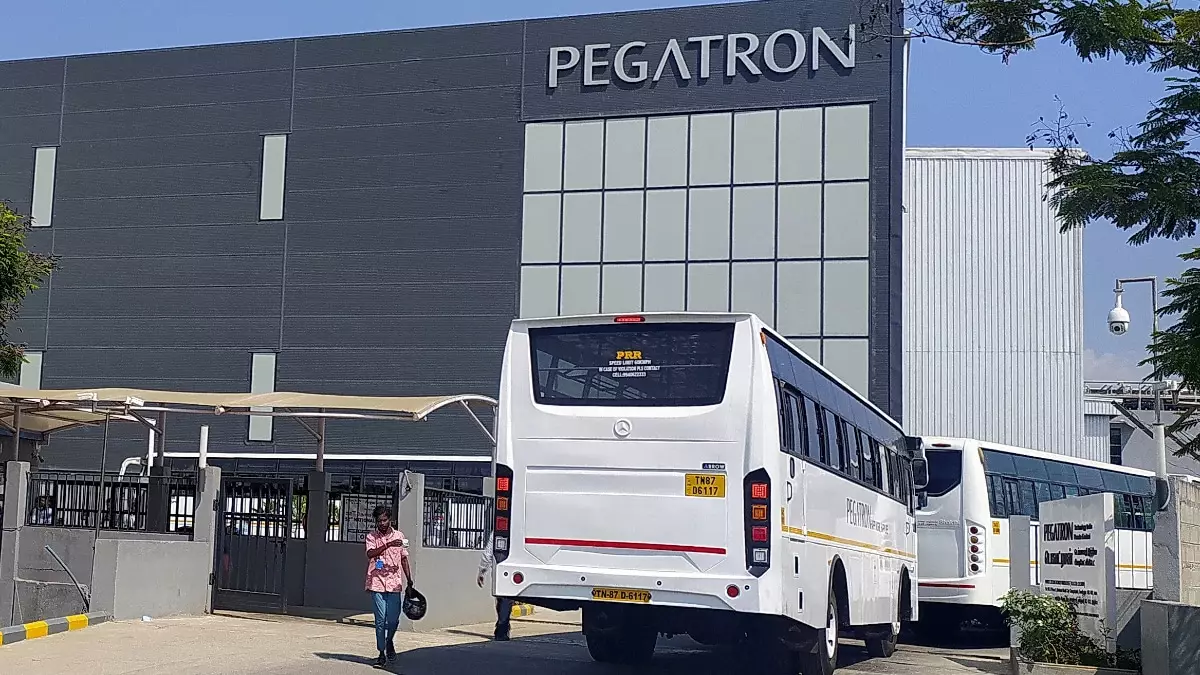The recent fire outbreak at Tata Group’s manufacturing facility in Hosur, Tamil Nadu, has raised significant concerns about the production of iPhone components crucial for the upcoming festive season in India. This incident not only disrupts the immediate supply chain for one of the world’s leading technology firms, Apple, but also poses broader implications for India’s growing status as an electronics manufacturing hub. As the market braces for the potential ramifications, analysts and industry insiders are closely monitoring supply chain adjustments and the future of local production.
Reports indicate that the fire, which occurred over the weekend, led to an indefinite halt in production at the plant, which is pivotal for manufacturing back panels and other components necessary for assembling iPhones. This facility is the sole supplier of these parts in India for not only Apple’s direct operations but also for Foxconn, one of its primary contract manufacturers. Such a disruption is particularly concerning as it has arrived at a time when demand for new iPhone models is expected to surge during the Indian festive season, which typically runs from late October to early November.
Industry experts estimate that Apple aimed to sell around 1.5 million units of the iPhone 14 and 15 models during this peak period. However, the fire is projected to hinder Apple’s ability to fulfill approximately 15% of this demand due to disrupted supply chains. Neil Shah from Counterpoint Research noted that while suppliers usually maintain a stock of components to mitigate these types of events, the current situation may require Apple to turn to imports and adjust its logistics to manage the shortfall effectively.
In light of the recent production challenges, Apple may need to re-evaluate its operational strategies. The company could potentially ramp up imports of essential components to alleviate the production gap created by the fire at Tata’s plant. Additionally, there is speculation that Apple may shift production efforts towards China, either by accelerating existing operations there or perhaps establishing new lines to ensure that they meet global demands without significant delay.
Beyond immediate alternatives, it is crucial to recognize that such supply chain disruptions could undermine Prime Minister Narendra Modi’s ambitious “Make in India” initiative, which seeks to bolster local manufacturing and attract foreign investment in the electronics sector. Analysts emphasize the importance of establishing robust safety measures and operational protocols to prevent these types of incidents from occurring in the future.
Tata’s incorporation into Apple’s network of suppliers is relatively new, yet its role has been growing rapidly. Projections suggest that Tata’s contributions to iPhone shipments could range between 20-25% this year, marking a significant rise from the previous year. However, the recent fire raises doubts about the reliability of these production lines, especially as Tata moves forward with plans to bring additional plants online, including those intended to manufacture complete iPhones.
Long-term implications of the incident are still unfolding. The plant in question supports around 20,000 workers, and uncertainty surrounds whether the operations at other nearby units will be able to continue as planned. Delays in production could have wider economic repercussions, impacting employment levels and local economies that rely heavily on this sector.
The fire at Tata Group’s iPhone component plant highlights both the fragility and critical importance of supply chain resilience in the tech industry. While immediate measures may mitigate some of the production impact, the potential for similar incidents to arise in the future cannot be overlooked. As Apple continues to diversify its supply chains and rely on Indian manufacturing partners, the outcomes of this case will likely shape future operational strategies and risk management policies. For now, the government, corporations, and stakeholders must come together to address these vulnerabilities effectively to ensure that India can continue to cultivate its growing role in global electronics manufacturing.


Leave a Reply